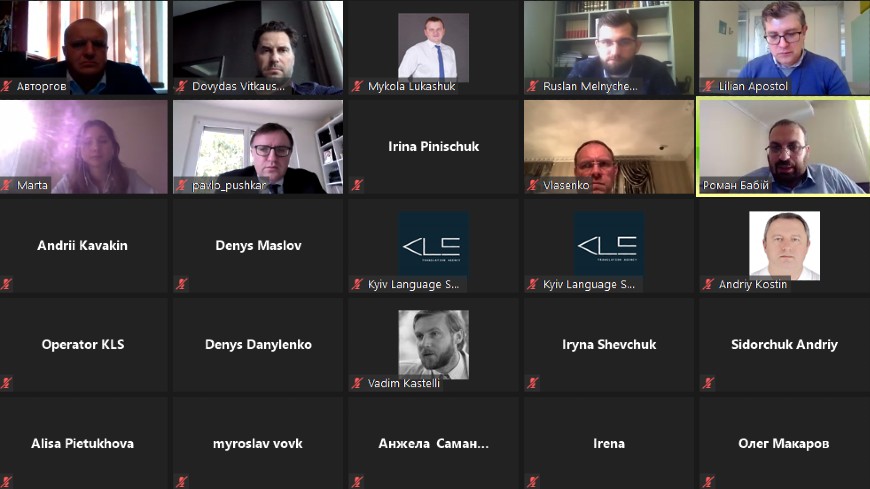On October 27 and 30, expert consultations were held on the implementation of effective mechanisms of parliamentary control and the bankruptcy procedure for state-owned and state-controlled enterprises, as well as on improving socially-oriented legislation, which involved members of the Subcommittee on the Execution of Judgments of the European Court of Human Rights and Alternative Dispute Resolution of the Committee of the Verkhovna Rada of Ukraine on Legal Policy in the framework of preparation for the parliamentary hearings “Problems of the execution by Ukraine of the judgments of the European Court for Human Rights.”
These events were organised by the Council of Europe project “Further support for the execution by Ukraine of judgments in respect of Article 6 of the European Convention on Human Rights” (the Project), which is funded by the Human Rights Trust Fund.
During the first event, the participants discussed the recommendations of the Project’s experts on the implementation of mechanisms of parliamentary control over the execution of judgments of the European Court of Human Rights and mechanisms for addressing problematic aspects in bankruptcy procedures for state-owned and state-controlled enterprises (in the context of the execution of the European Court of Human Rights judgments in the cases of Yuriy Nikolayevich Ivanov v. Ukraine and Burmych and Others v. Ukraine).
“The issue of moratoriums is, indeed, extremely complex and controversial. Absolutely, we need to take into account the socio-economic impact of lifting the moratoriums and non-execution of national judgments. We have to balance the demands of the European Court of Human Rights to lift the moratoriums and to find ways to resolve the problem of non-execution of the court’s judgments,” said the head of the division of the Department for the Execution of Judgments of the European Court of Human Rights at the Council of Europe Directorate General of Human Rights and Rule of Law Pavlo Pushkar.
During the second event, experts of the Project and the Council of Europe project “Promoting social human rights as a key factor of sustainable democracy in Ukraine” presented their opinions and recommendations on issues related to socially-oriented legislation and regulatory measures needed to eliminate these issues in the context of the execution of the judgments of the European Court of Human Rights in the above-mentioned cases, and these opinions and recommendations were then discussed by the event’s participants.
“Non-executed judgments granting social benefits are identified as the most numerous group. They grew exponentially, mostly because of the adoption of rather populist socially-oriented legislation, which is not subsidized by the state budgetary fund. Moreover, this legislation appears to be poorly drafted and unclear, thus, leading to inconsistent interpretation and incoherent administrative or judicial practices. In addition to these shortcomings, the statistical information on social benefits payments is unreliable for budgetary planning and strategic vision on policies in the social security area.Thus, the role of the Verkhovna Rada of Ukraine is criticall,” said Head of the Justice Sector Reform Unit at the Justice and Legal Cooperation Department of the Council of Europe Lilit Daneghian-Bossler.
Following these expert consultations, the Project finalized and published three expert analytical documents:
1. Expert analysis “Parliamentary oversight of the execution of judgments of the European Court of Human Rights: a brief overview of the practice of the Council of Europe member states in addressing systemic problems of non-execution,” prepared by international expert Lillian Apostol;
2. Expert analysis “Procedure and practice regarding the bankruptcy of state-owned enterprises in Ukraine in the context of the execution of the European Court of Human Rights judgments in the cases of Yuriy Nikolayevich Ivanov v. Ukraine and Burmych and Others v. Ukraine”, prepared by national expert Ruslan Melnychenko;
3. Expert analysis “Improving socially-oriented legislation as part of the execution of judgments of the European Court of Human Rights. Selected practice of the Council of Europe member states,” prepared by international expert Lilian Apostol.






